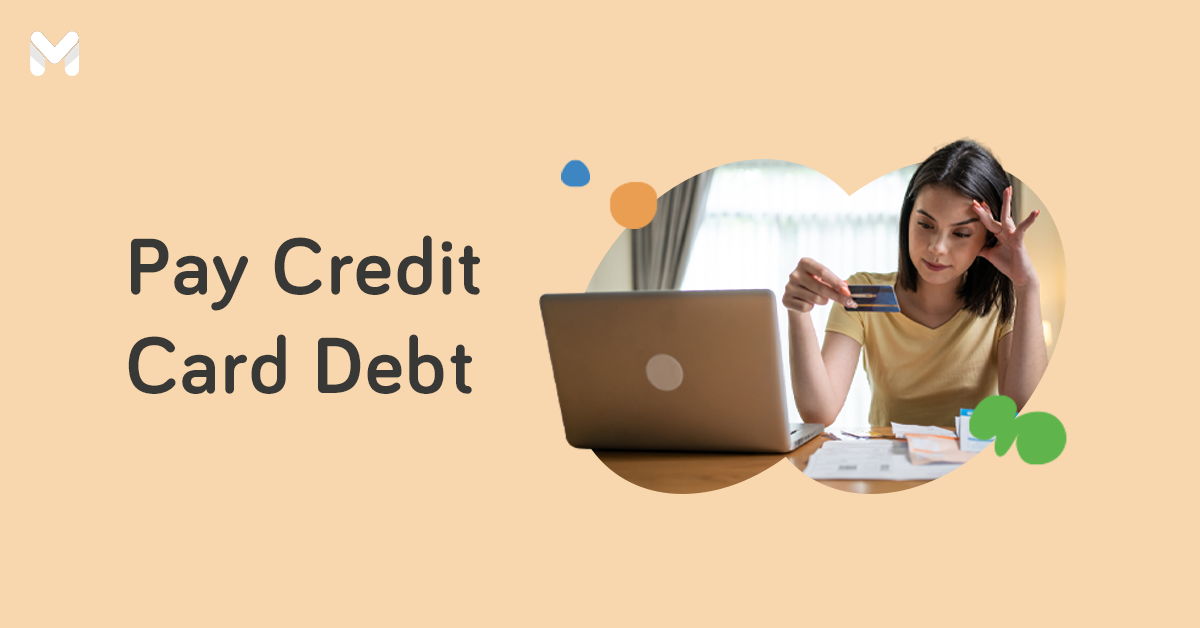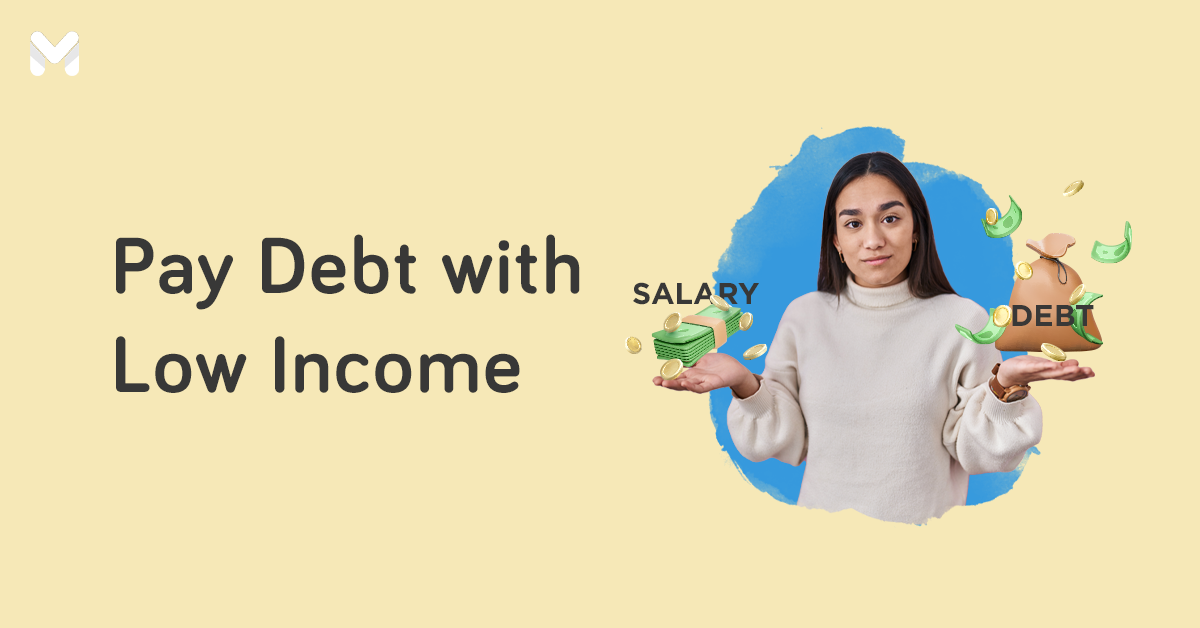“Begin with the end in mind.”
To begin with the end in mind means knowing where you’re going—this way, you can better understand where you are now and ensure that the steps you take are always in the right direction.
Dr. Stephen Covey's second habit in the book "The 7 Habits of Highly Effective People" emphasizes the value of thinking first before you act. This applies to all facets of life, including ongoing personal battles: coping with grief, toxic relationships, struggles at work, and financial hardship.
It’s easy to assume the worst, wallow in despair, or disregard contractual obligations. But that’s not how to deal with any kind of crisis. You need to face your responsibilities—including settling your outstanding bills and debts—head-on.
This article aims to help you manage debt and to provide answers to common questions that borrowers ask, like what happens with non-payment of loans in the Philippines.
Non-Payment of Loans in the Philippines: Your Burning Questions Answered

👉 Is there a difference between loan delinquency and loan default?
Loan delinquency and loan default are used interchangeably in the Philippines.
Under Republic Act No. (R.A.) 10870, otherwise known as the Philippine Credit Card Industry Regulation Law, default or delinquency refers to the nonpayment or payment of an amount less than the amount required to be paid for at least three billing cycles. The law also says that the billing cycle is the period between billing, which comprises at least 15 days.
👉 Can I go to jail for not paying personal or online loans? Are there any legal actions for not paying debts in the Philippines?
Every day, many borrowers default on their loans.
They all have a few questions in common: Is there a Philippine law about unpaid debt? Will non-payment of loans in the Philippines result in imprisonment? What happens if I don't pay my online loan—can I get arrested?
Article III, Section 20 of the 1987 Constitution expressly states that “no person shall be imprisoned for debt.” Therefore, it is unlawful to arrest or detain anyone because of debt.
However, if you issued a check to repay debt, which is later dishonored due to insufficiency or lack of funds, you may be criminally liable under Batas Pambansa 22 or the Bouncing Checks Law.
Also, under R.A. 8484 or the Access Devices Regulation Act of 1998, a cardholder is presumed to commit fraud if they abandon or surreptitiously leave their place of employment, business, or residence without informing the credit card company.
Only a few countries impose imprisonment due to the inability to pay a debt. This is because this violates international human rights under the International Covenant on Civil and Political Rights, to which the Philippines is a party.
But this doesn’t mean you should refuse to pay your debt. Interest accrues throughout the days, months, or years that you fail to pay off your debt.
Article III, Section 20 of the 1987 Constitution expressly states that “no person shall be imprisoned for debt.” Therefore, it is unlawful to arrest or detain anyone because of debt.
👉 If borrowers can’t be jailed for non-payment of loans in the Philippines, does it mean lenders can’t file a case against them?
Does it mean there won't be any criminal cases filed against me for not paying debts in the Philippines in 2023?
Take note that imprisonment is for a criminal case. But the lender can still file a civil case against you in court for a Collection for a Sum of Money when you default on a loan. If it’s a secured loan (e.g., car loan, housing loan, and other loans with collateral), a complaint for foreclosure may be filed.
In which case, if the lender wins, you’ll be ordered by the court to pay the amount you owe plus interest, moral damages, exemplary damages, and other legal damages that the lender may ask the court to award.
This is a lengthy and tedious process that will cost more money. It will also negatively impact your credit history, which banks and other lending institutions rely on next time you apply for a loan.
Credit bureaus in the Philippines now provide credit scores, and yours will be affected if you have unpaid loans. Your negative information in your credit history files will remain in the Credit Information Corporation (CIC) database for not more than three years upon payment or settlement of debts through compromise agreements or court decisions.[1] The CIC is the Philippines’ repository of credit data.
The lender can still file a civil case against you in court for a Collection for a Sum of Money when you default on a loan. If it’s a secured loan (e.g., car loan, housing loan, and other loans with collateral), a complaint for foreclosure may be filed.
👉 Can you ignore a call from a debt collector?
Your phone rings at 11:30 p.m., and just by looking at your phone’s screen, you know that it’s a debt collector. Yes, you can ignore this call.
Making contact to collect the debt at unreasonable or inconvenient hours before 6:00 a.m. or after 10:00 p.m. is a violation of the regulations and circular on unfair collection practices issued by the Bangko Sentral ng Pilipinas[2] (for banks and collection agencies) and the Securities and Exchange Commission[3] (for financing companies and lending companies), unless you’ve given consent for the collecting agent to contact you during those hours.
👉 I’m being harassed due to my delinquent payment. What should I do?
-Jun-15-2023-08-23-33-6708-AM.png?width=675&height=450&name=Pics%20for%20blog%20-%20600x400%20(2)-Jun-15-2023-08-23-33-6708-AM.png)
Don’t fall prey to phone calls and text messages from lenders or collecting agencies threatening to have you arrested. Beware of those pretending to be debt collectors or officers of the court. Don’t provide any of your details to the caller.
Instead, ask that the communication be recorded and done via email and ask for the following information:
- Caller’s name
- Loan amount (for confirmation)
- Name and address of the collection agency
- Name of the original lender (bank, credit card, financing company, etc.)
Legitimate collecting agencies should be able to provide you with such information.
If a collection agency is contacting you through phone calls, letters, text messages, or emails, there should have been a prior endorsement by the bank or credit card issuer for an unpaid credit card debt.
Section 21 of R.A. 10870 or the Philippine Credit Card Industry Regulation Law requires that a credit card issuer first inform its credit cardholder in writing about the endorsement before making an actual endorsement to a collection agency. You may also check the Credit Card Association of the Philippines (CCAP) website to verify the list of accredited collection agencies.[4]
Using threats, violence, or other criminal means to harm the physical person, reputation, or property of any person, as well as obscenities, insults, or profane language constitute unfair debt collection practices prohibited by the BSP and the SEC.
Even if the credit card issuer, financing, and lending companies have outsourced the collection of debts, they’re still responsible for complying with the BSP’s regulations and SEC’s circular.
On April 23, 2021, the Department of Justice – Office of Cybercrime (DOJ-OOC) issued a Public Advisory[5] enumerating the acts that qualify as unfair debt collection practices and cyber harassment with the corresponding criminal violations that victims may file with the following appropriate government agencies:
- National Bureau of Investigation’s Cyber Crime Division (NBI-CCD)
- Philippine National Police Anti-Cybercrime Group (PNP ACG)
- National Privacy Commission (NPC)
- Securities and Exchange Commission (SEC)
Using threats, violence, or other criminal means to harm the physical person, reputation, or property of any person, as well as obscenities, insults, or profane language constitute unfair debt collection practices.
Read more: Drowning in Debt? Here’s How You Can Eliminate Them
👉 Can you reach out to your lender if you can’t pay off your debt?
-Jun-15-2023-08-28-49-2156-AM.png?width=675&height=450&name=Pics%20for%20blog%20-%20600x400%20(3)-Jun-15-2023-08-28-49-2156-AM.png)
Yes. You can negotiate with your lender. If you miss a due date or know that you can’t pay your loan, be proactive and reach out to your lender immediately.
Many lenders—including banks, credit card issuers, lending companies, and financing companies—are open to modifying payment plans for borrowers experiencing financial hardship.
These revised payment plans may include the following:
- Waived or reduced loan fees, interest, and penalties
- Extended loan maturity
- Loan restructuring
- Grace periods
Your lender can develop other favorable payment schemes depending on your payment behavior with them and the financial setbacks you’re facing. So yes, you can contact your lender right away to discuss how to make it easier for you to pay off your debt.
Read more:
- Becoming Free of Debt: Why You Should Start Paying Your Debts Now
- Until “Debt” Do Us Part? What You Should Know If You're Marrying Someone with Debt
Final Thoughts
No matter how tempting it is to shrug off your loan payment deadlines, don’t. Like any difficulty in life, avoiding the problem won’t make it go away—it will only worsen.
By visualizing a well-defined direction of how you want to deal with non-payment of loans in the Philippines, you’ll be able to plan it effectively and execute it properly. Remember: begin with the end in mind. Think first, then act.

Sources:
- [1] Republic Act No. 9510 - Credit Information System Act, Section 4(h) (CIC)
- [2] The Manual of Regulations for Banks (BSP, 2016)
- [3] SEC Memorandum Circular No. 18 Series of 2019
- [4] List of Accredited Collection Agencies (CCAP, December 2019)
- [5] Illegal Collection Practices of Online Lending Companies (DOJ, April 2021)
DISCLAIMER: The information provided on this website does not, and is not intended to, constitute legal or financial advice. All information, content, and materials available on this site are for general informational purposes only. Information on this website may not constitute the most up-to-date legal or other information and is subject to change without notice.
No user of this site should act or refrain from acting on the basis of information on this site without first seeking legal advice from their own attorney in the relevant jurisdiction. Only your individual attorney can provide assurances that the information contained herein – and your interpretation of it – is applicable or appropriate to your particular situation. Use of, and access to, this website or any of the links or resources contained within the site do not create an attorney-client relationship between the reader, user, or browser and website authors, contributors, contributing third parties, and their respective employers.
All liability with respect to actions taken or not taken based on the contents of this site are hereby expressly disclaimed. The content on this posting is provided "as is;" no representations are made that the content is error-free.







_1200x350_CTA.png?width=1200&height=350&name=UB_PL_Generic_Ad_-_Home_Improvement_(Sep_2023)_1200x350_CTA.png)
_1200x350.png?width=751&height=219&name=UB_PL_Generic_2_(Jan_2025)_1200x350.png)
.png)

